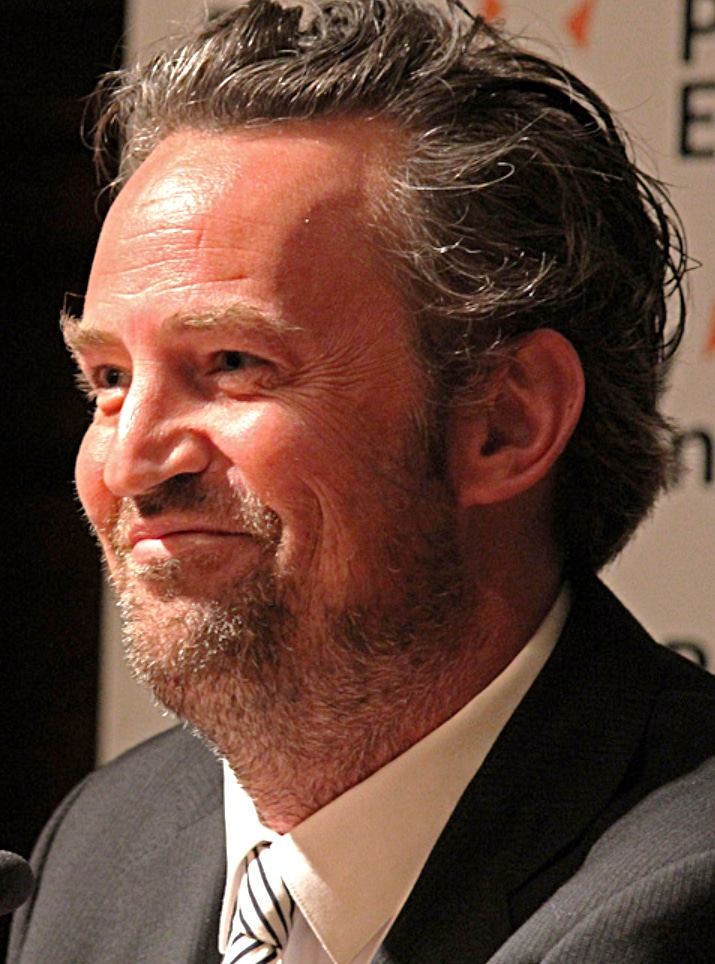 BBC News
BBC NewsBorrowing was £17.4bn last month, the second highest October figure since monthly records began in 1993.

Christopher Jackson
There is a scene in Matthew Perry’s memoir Friends, Lovers and The Big, Terrible Thing which it is impossible to read without sadness over the past few days.
In it, Perry recalls the period before the first episode of Friends aired. It was a heady time. The internal data from the television studio showed with certainty that the show would be the gigantic hit which it became. Some sensible producer observed that as a result all six of the main cast – Jennifer Aniston, Courtney Cox, Lisa Kudrow, Matt Le Blanc, David Schwimmer and Perry himself – would soon become very famous indeed. It was therefore suggested that the cast go out for a night out on the tiles – a last stab at the anonymity which they were about to surrender for good.
What makes the scene interesting is Perry’s evident nostalgia for that time before his name became so known. It was President Obama who during an appearance on Jerry Seinfeld’s Comedians in Cars Getting Coffee opined that he hadn’t considered the value of anonymity before becoming famous. Seinfeld replies: “It wasn’t that great.” Perry would agree with Obama that something almost beyond price is lost at the point of transitioning away from obscurity into its moneyed opposite.
As the reader, we have mixed feelings reading about this strange night out before gigantic celebrity is bestowed. On the one hand, if Perry’s fame was what it took for us to be able to know Chandler Bing over the ten astonishingly successful seasons of Friends perhaps the pain which came to him as a celebrity was in some way a necessary sacrifice at the altar of light entertainment.
On the other hand, seeing his evident unhappiness down the years, and his essential inability to function in the spotlight, one wishes him out of it altogether. Perry as a failed actor would surely have been a happier man; one even wonders whether someone else could have played Chandler who might actually have enjoyed the experience and not felt the pressure of it all so acutely.
But really there never was any need for such dichotomy: there should never have been any either/or about Matthew Perry’s predicament. Was Perry always going to suffer mental health issues or were they a biproduct of fame? It seems likely that the latter had a huge role to play.
It would be better if we were able to inhabit a society where television is just one of a thousand other professions and not elevated to such a crazy extent by the paraphernalia of stardom. We are a society of the famous and the not-famous-at-all: it quickens the pulse of most people to be see a celebrity in the flesh. Fame messes with the head, as Martin Amis, also famous and also one of those to die in 2023, frankly put it in his own memoir Experience.
Similarly, Perry’s life reminds us that the discussion around mental health is still very much in its infancy, though it was accelerated hugely during the pandemic when all of us felt alarmed at the unnaturalness of the situation. The options aren’t always sufficient even if you have the money to fight the problem: Perry spent $9 million dollars fighting his afflictions and one sometimes wonders whether even high-end provision in this area is enough to really move the dial if someone has gone far enough down the path of self-destruction.
Yet despite all this, we have Perry’s work and this reminds us that there was for a while something marvellous about Friends especially in those first few seasons. We have also forgotten at this point – especially since the others went on to have more successful and stable careers than Perry – how much the show really revolved around Chandler/Perry.
This was because while Ross, played by David Schwimmer, had the funniest slapstick moments, Chandler always had the best lines. It was Seinfeld again who identified that the final stage of comedy is to have people talking like you because it’s so much fun. Perry alone of the Friends cast reached that level: “Could I be wearing any more clothes.”
That intonation on the word ‘be’ can summon back for me the whole of the 1990s. Chandler’s wit was a way of staving off the eternal anxiety of youth – the sort of anxiety which is meant to have been dispatched by the age Perry was when he was playing the role. This is why the show is so popular among teenagers; at that age we identify with Chandler.
Sadly in Chandler Perry had left an autobiography of sorts of a perennially nervous man who must joke in order to function. Nietzsche wrote that a joke is an epitaph on the death of a feeling, but these were feelings which could not die with Perry. A sense of inadequacy, perhaps arising out of his parents’ divorce, pursued him and was always going to be more successful in that pursuit once Perry was made vulnerable by fame.
In one famous scene, Chandler says: “I’m not great at advice. Can I interest you in a sarcastic comment?” He always could interest us in that, but it was his fate to end up dispensing advice: don’t be like me.
Yet in our world today we all want to emulate the famous if only to have infinite money and opportunity. His death is a moment to mourn the loss of a kind man and magnificent comic talent, but also to consider a fundamental recalibration in our relationship with fame.